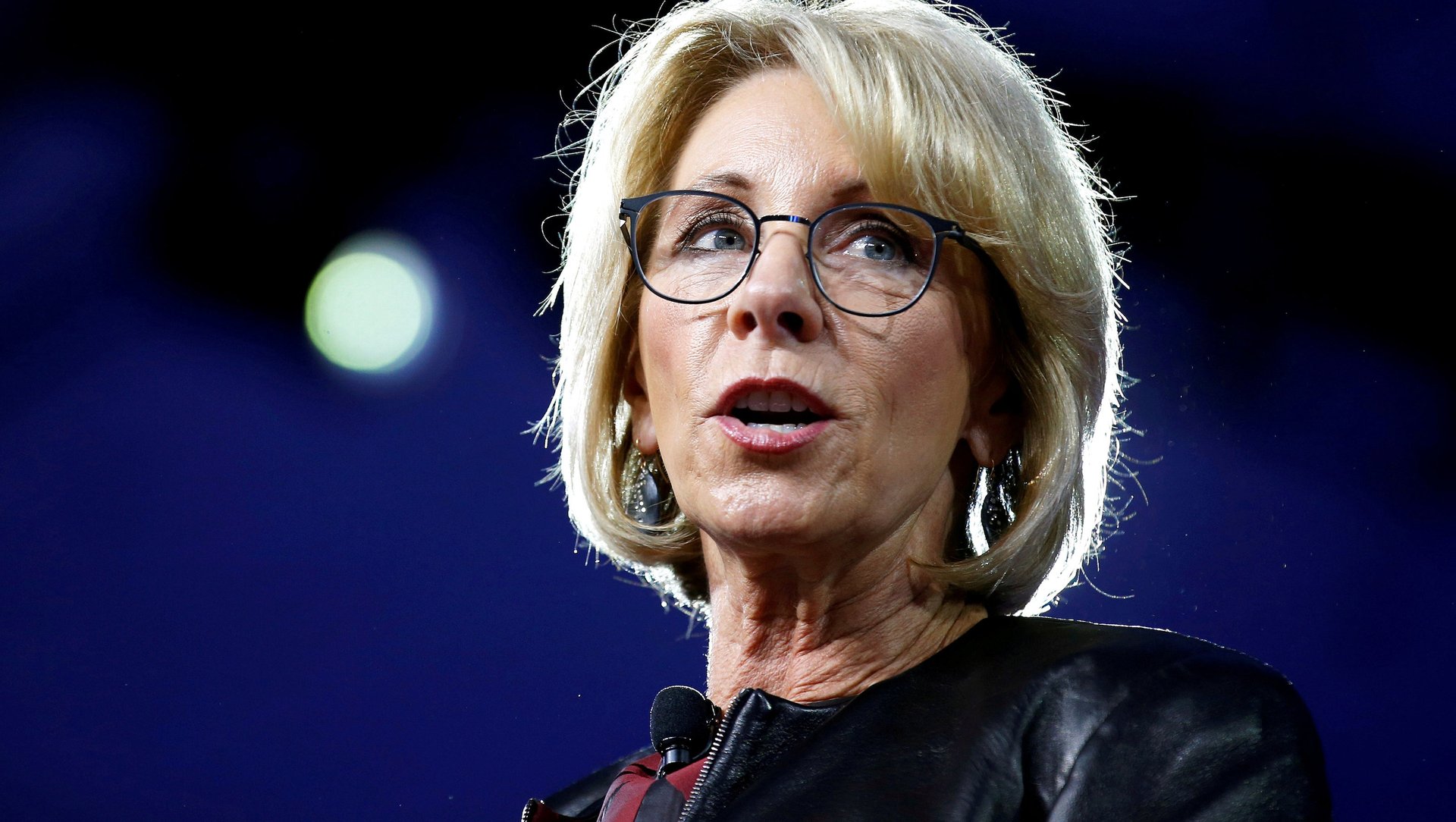The examples Betsy DeVos uses to justify ending Obama’s strict policies on college sexual assault
US education secretary Betsy DeVos announced today that her department is reviewing former president Barack Obama’s stringent policies on sexual assault on college campuses—specifically, aiming to scale back his “ambiguous and incredibly broad definitions of assault and harassment.”


US education secretary Betsy DeVos announced today that her department is reviewing former president Barack Obama’s stringent policies on sexual assault on college campuses—specifically, aiming to scale back his “ambiguous and incredibly broad definitions of assault and harassment.”
“Any perceived offense can become a full-blown Title IX investigation. But if everything is harassment, then nothing is,” DeVos said in prepared remarks at George Mason University. Title IX is the government statute that covers sex discrimination in education, which the Obama-era administration used to apply strict rules to assault reports on college campuses. In DeVos’ view, those policies have only served to “creates more victims”: students who have been wrongfully accused or punished.
Her full remarks are available on the education department’s website; in them, she cited two cases that she said justified rolling back the Obama-era protections known by those who hate it as the “Dear Colleague” letter:
You may have recently read about a disturbing case in California. It’s the story of an athlete, his girlfriend and the failed system. The couple was described as “playfully roughhousing,” but a witness thought otherwise and the incident was reported to the university’s Title IX coordinator. The young woman repeatedly assured campus officials she had not been abused nor had any misconduct occurred. But because of the failed system, university administrators told her they knew better. They dismissed the young man, her boyfriend, from the football team and expelled him from school.
“When I told the truth,” the young woman said, “I was stereotyped and was told I must be a ‘battered’ woman, and that made me feel demeaned and absurdly profiled.”
This is the current reality.
She added:
I also think of a student I met who honorably served our country in the Navy and wanted to continue his education after his service. But he didn’t know the first thing about higher education. He Googled “how to apply to college” and applied to one nearby, an HBCU. He was accepted and became the first in his family to attend college.
The student told me that as graduation approached, his grandmother beamed with pride. She had already purchased a flight and picked out her Sunday best for the occasion. But three weeks before graduation, he saw his future dashed.
This young man was suspended via a campus-wide email which declared him a “threat to the campus community.” When he tried to learn the reason for his suspension, he was barred from campus. He was not afforded counsel by the college and couldn’t afford counsel himself. Eventually, he found a lawyer who submitted a Freedom of Information Act request pro bono—but would do no more.
Only through the FOIA was he able to discover he had been accused of sexual harassment, but he was still denied notice of the specific allegations, and he remained suspended.
DeVos—who, from the very start, was one of the most controversial of Donald Trump’s cabinet picks, inciting rage from across the country both before and after her rocky confirmation—stressed two “non-negotiable principles.” First: “Every survivor of sexual misconduct must be taken seriously,” she said. But, equally, “every student accused of sexual misconduct must know that guilt is not predetermined.”